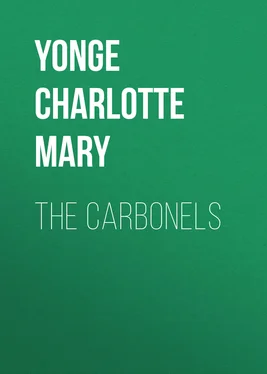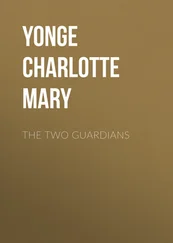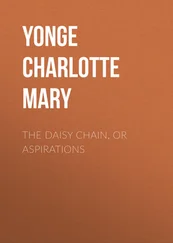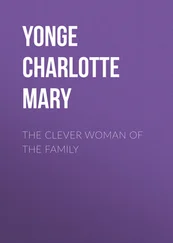Charlotte Yonge - The Carbonels
Здесь есть возможность читать онлайн «Charlotte Yonge - The Carbonels» — ознакомительный отрывок электронной книги совершенно бесплатно, а после прочтения отрывка купить полную версию. В некоторых случаях можно слушать аудио, скачать через торрент в формате fb2 и присутствует краткое содержание. Жанр: foreign_prose, literature_19, Европейская старинная литература, foreign_antique, на английском языке. Описание произведения, (предисловие) а так же отзывы посетителей доступны на портале библиотеки ЛибКат.
- Название:The Carbonels
- Автор:
- Жанр:
- Год:неизвестен
- ISBN:нет данных
- Рейтинг книги:4 / 5. Голосов: 1
-
Избранное:Добавить в избранное
- Отзывы:
-
Ваша оценка:
- 80
- 1
- 2
- 3
- 4
- 5
The Carbonels: краткое содержание, описание и аннотация
Предлагаем к чтению аннотацию, описание, краткое содержание или предисловие (зависит от того, что написал сам автор книги «The Carbonels»). Если вы не нашли необходимую информацию о книге — напишите в комментариях, мы постараемся отыскать её.
The Carbonels — читать онлайн ознакомительный отрывок
Ниже представлен текст книги, разбитый по страницам. Система сохранения места последней прочитанной страницы, позволяет с удобством читать онлайн бесплатно книгу «The Carbonels», без необходимости каждый раз заново искать на чём Вы остановились. Поставьте закладку, и сможете в любой момент перейти на страницу, на которой закончили чтение.
Интервал:
Закладка:
Molly sank into a chair, put her apron over her face and cried, rocking herself to and fro, while Judith, with tears in her eyes, tried gentle consolations all in vain, till Molly remembered her washing, and rose up, moaning and lamenting.
Meantime Mrs Carbonel and her sister were exclaiming in pity that this was a dear good girl, though Edmund shook his head over her surroundings.
“I wonder how to make her more comfortable,” said Dora. “She seemed so much pleased when I promised to bring her something to read.”
“I am afraid those Hewletts prey on her,” said Mary.
“And patronising her will prove a complicated affair!” said the captain.
He wanted them to come home at once, but on the way they met Nanny Barton, who began, with low curtsies, a lamentable story about her girls having no clothes, and she would certainly have extracted a shilling from Miss Carbonel if the captain had not been there.
“Never accept stories told on the spur of the moment,” he said.
Then Betsy Seddon and Tirzah Todd came along together, bending under heavy loads of broken branches for their fires. Tirzah smiled as usual, and showed her pretty teeth, but the captain looked after her, and said, “They have been tearing Mr Selby’s woods to pieces.”
“What can they do for firewood?” said his wife.
“Let us look out the rules of your father’s coal store and shoe club,” he said.
Chapter Six.
The Neighbourhood
“Through slush and squad,
When roads was bad,
But hallus stop at the Vine and Hop.”
Through all Pucklechurch’s objections and evident contempt for his fancies, and those of young madam, Captain Carbonel insisted on the clearance of the yard. He could not agree with the old man, who made free to tell him that, “Such as that there muck-heap was just a bucket to a farmer’s wife, if she was to be called a farmer’s wife—was that it.”
With some reflection, Captain Carbonel decided that a bucket might mean a bouquet, and answered, “Maybe she might have too much of a good thing. When I went down to Farmer Bell’s the other day, they had a famous heap, and I was struck with the sickly look of his wife and daughters.”
“His missus were always a poor, nesh ’ooman,” returned Pucklechurch.
“And I don’t mean mine to be like her if I can help it,” said the captain.
But he did not reckon on the arrival of a prancing pair of horses, with a smart open carriage, containing two ladies and a gentleman, in the most odorous part of the proceedings, when he was obliged to clear the way from a half-loaded waggon to make room for them, and, what was quite as inconvenient, to hurry up the back stairs to his dressing-room to take off his long gaiters, Blucher boots (as half high ones were then called) and old shooting coat, and make himself presentable.
In fact, when he came into the room, Dora was amused at the perceptible look of surprised approval of the fine tall soldierly figure, as he advanced to meet Mr and Mrs Selby and their daughter, the nearest neighbours, who were, of course, in the regular course of instruction of the new-comers in the worthlessness and ingratitude of Uphill and the impossibility of doing anything for the good of the place.
Mary was very glad that he interrupted the subject by saying merrily, “You caught me in the midst of my Augean stable. I hope next time you are kind enough to visit us that the yard may be in a more respectable condition.”
Mr Selby observed that it was unpardonable not to have done the work beforehand, and the captain answered, “On the contrary, it was reserved as a fragrant bucket, or bouquet for a farmer’s wife.”
Whereat the visitors looked shocked, and Mary made haste to observe: “But we do hope to make a better road to the house through the fields.”
“There is a great deal to be done first,” said Dora, who thought the observation rather weak.
Nothing else that was interesting took place on this occasion. Mr Selby asked the captain whether he hunted, and gave him some information on the sport of all kinds in the neighbourhood. Miss Selby asked Dora if she liked archery, music, and drawing. Mrs Selby wanted to recommend a housemaid, and advised Mrs Carbonel against ever taking a servant from the neighbourhood. And then they all turned to talk of the evil doings of the parish thieves, poachers, idlers, drunkards, and to warn the Carbonels once more against hoping to improve them. The horses could be heard pawing and jingling outside, and, as the ladies rose to take leave, Captain Carbonel begged leave to hurry out and clear the coast. And it was well that he did so, for he had to turn back a whole procession of cows coming in to be milked, and sundry pigs behind them.
The farm court was finished, and never was so bad again, the animals being kept from spending their day there, except the poultry, in which Mary took great delight. Soon came more visitors, and it became a joke to the husband and sister that she always held out hopes of “the future drive” when they arrived, bumped or mired by the long lane. “Mary’s Approach,” as Edmund called it, had to be deferred till more needful work was done. The guests whom they best liked, Mr and Mrs Grantley, the clergyman and his wife from the little town of Poppleby, gave an excellent and hopeful account of their rector, Dr Fogram, who was, they said, a really good man, and very liberal.
Mrs Grantley was interested in schools and poor people, as it was easy to discover, and Mary and Dora were soon talking eagerly to her, and hearing what was done at Poppleby; but there were gentry and prosperous tradespeople there, who could be made available as subscribers or teachers; so that their situation was much more hopeful than that of the Carbonels, who had not the authority of the clergyman.
Poppleby was a much larger place than Downhill, on the post road to London. The mail-coach went through it, and thence post-horses were hired, and chaises, from the George Inn. The Carbonels possessed a phaeton, and a horse which could be used for driving or riding, and thus Captain Carbonel took the two ladies to return the various calls that had been made upon them. They found the Selbys not at home, but were warmly welcomed by the Grantleys, and spent the whole afternoon with them, and, at Dora’s earnest request, were taken to see the schools. So different was the taste and feeling of those days that, though Poppleby Church was a very fine old one—in grand architecture, such as in these days is considered one of the glories of the country—no one thought of going to look at it, and the effect of Mr Grantley’s excellent sermons had been the putting up of a new gallery right across the chancel arch.
It had a fine tower and steeple, and this Dora thought of as a delightful subject for a sketch from the Parsonage garden. She made great friends with Lucy Grantley, the eldest daughter, over their tastes in drawing, as well as in the Waverley novels and in poetry, and was invited to spend a long day at Poppleby and take a portrait of the steeple.
After the calls had been made and returned began the dinner-parties. Elmour Priory was so near Greenhow that it would have been easy to walk there across the fields, or to drive in the phaeton, especially as the hours were much earlier, and six or half-past was held to be a late dinner hour, but this would have been contrary to etiquette, especially the first time, with people who evidently thought much of “style,” and the Carbonels were not superior to such considerations, which were—or were supposed to be—of more importance in those days. So a chaise was ordered, and they went in state, and had a long, dull evening, chiefly enlivened by the Miss Selbys and Dora playing on the piano.
Читать дальшеИнтервал:
Закладка:
Похожие книги на «The Carbonels»
Представляем Вашему вниманию похожие книги на «The Carbonels» списком для выбора. Мы отобрали схожую по названию и смыслу литературу в надежде предоставить читателям больше вариантов отыскать новые, интересные, ещё непрочитанные произведения.
Обсуждение, отзывы о книге «The Carbonels» и просто собственные мнения читателей. Оставьте ваши комментарии, напишите, что Вы думаете о произведении, его смысле или главных героях. Укажите что конкретно понравилось, а что нет, и почему Вы так считаете.












